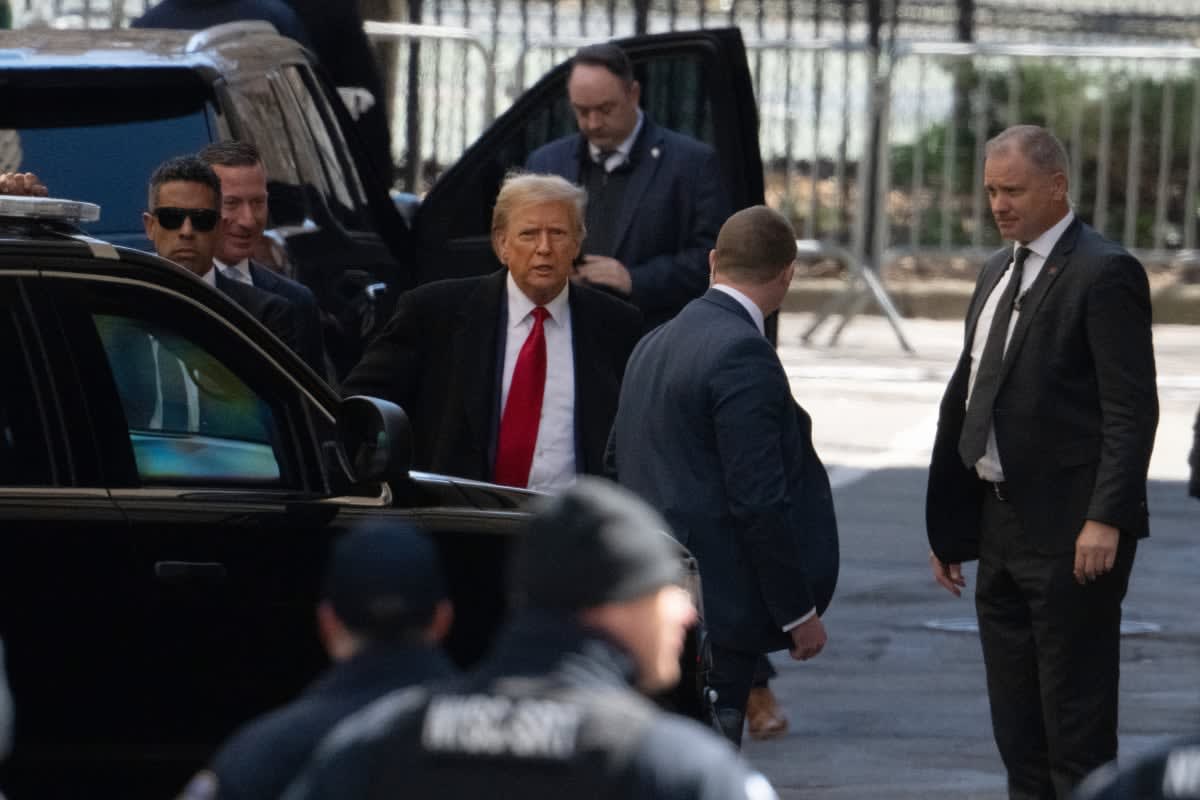Fani Willis, the district attorney of Fulton County, indicted Donald Trump and eighteen accomplices last year for their scheme to hijack the 2020 Georgia election. In contrast to its counterpart in federal court, the Georgia trial was broadcast on television. The United States had experienced its fair share of ‘Trials of the Century’ before the invention of television, but it brought the drama and immediacy of these trials into more households.

As reported by The New York Times , on June 17, 1994, 95 million Americans tuned in to see retired football player and actor O.J. Simpson drive that white Ford Bronco while leading the Los Angeles Police Department on a slow-motion highway pursuit . Simpson was accused of the murders of his ex-wife Nicole Brown Simpson and her acquaintance Ron Goldman after the pursuit concluded.
The jury rendered a not-guilty verdict over the tube over a year later, to the delight of millions of viewers. America viewed unprecedented numbers of cable news programs during the time between these two events.

Three years after the four police officers who assaulted Rodney King on camera were acquitted, and the subsequent Los Angeles unrest ensued, Simpson’s trial soon followed. Black residents were frequently subjected to mistreatment and gang tactics by the LAPD. Simpson had formally severed ties with the Black community and any form of civil rights advocacy some time ago.
However, his attorneys, who allegedly were aware of his culpability, maintained a single persuasive line of reasoning: that Simpson was an additional casualty of the discriminatory Los Angeles Police Department. Extending beyond the courtroom, the maneuver was effective.

It appears that Trump’s televised trial adhered to a comparable narrative of victimization. His political appeal consistently mirrored his public defense. In the same way that Simpson represented the entirety of racist police brutality in the United States, Trump intended to embody the grievances of his predominantly white conservative constituency. Trump, along with his supporters, contended that he, like African Americans, is subject to a ‘two-tiered justice system.’
Noah Rothman published an article in the conservative National Review last year stating, “To listen to the former president’s defenders talk about his legal woes is to hear the echoes of a sordid history. It’s a noise that celebrates the miscarriage of justice as long as injustice is meted out in equal measure. It rejects equality before the law as an aspirational concept designed to apply a patina of legitimacy to structures that exist only to preserve existing power dynamics. In short, Donald Trump has become their O.J. Simpson.”

Historically, federal criminal courts have strictly prohibited the use of cameras or recording devices. However, due to the significance of the Trump case, members of Congress from Capitol Hill at the time began to advocate for an exception to this rule, and a coalition of prominent news organizations was preparing to file an appeal with the judicial branch.
As per Deadline , Trump encountered the possibility of legal action in Georgia, where state courts lack a comprehensive prohibition. A “properly submitted request for recording should generally be approved,” according to the rules; however, judges retain discretion.




